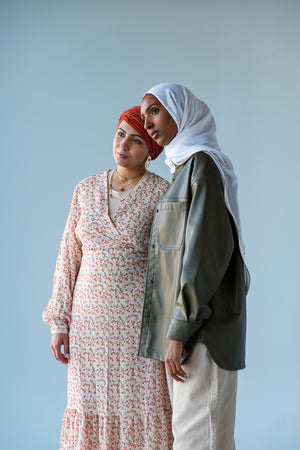
Pakistan: Islamic Nation in Crisis
Original price
£15.95
-
Original price
£15.95
Original price
£15.95
£15.95
-
£15.95
Current price
£15.95
A5 Size (Large) - 23 x 15 x 2 CMPages: 362
Binding: PaperBack
The book is an exhaustive treatise of Pakistan by an international civil servant. Part One of the book discusses the historical setting, modern setting, current conditions, who controls Pakistan. Part Two analyzes political leadership, conditions of the people, poverty and unemployment, increasing wealth, religious intolerance, powerless people, law and order, ethnic strife in Sindh, conflict in Baloachistan, corruption, borders and neighbors, relations with the West and national defense. Part Three discusses options for Change. Part Four provides a vision and Manifesto for Change and Conclusions and Recommendations.
**About the Author**
ALI NAWAZ MEMON was born in Shikarpur, in the province of Sindh, Pakistan, on 28 September 1941. He received his early education in Shikarpur, Laerkana, and Karachi, Pakistan. He obtained a B.S. in electrical engineering from the University of Illinois (1964) and an MBA (Honors) in international finance from the University of Oregon (1967). Mr. Memon joined the World Bank in October 1967, and has been an international civil servant since then. He has traveled, lived and worked in the United States as well as in many parts of Europe, Africa, Asia, and the Middle East. He has specialized in the financial management and institutional development of public utilities – particularly of electrical power and water supply companies. In spite of living abroad since December 1960, he has maintained close ties and contact with Pakistan and has undertaken several official missions to that country. He has been uniquely fortunate to have had many opportunities to interact with and be exposed to the views of peoples from the West and from Muslim countries.
In addition to his writings on financial and institutional development. Mr. Memon is the author of The Islamic Nation: Status and Future of Muslims in the new World Order. He frequently lectures and writes on current affairs topics relating to Pakistan and the Muslim world.
Binding: PaperBack
The book is an exhaustive treatise of Pakistan by an international civil servant. Part One of the book discusses the historical setting, modern setting, current conditions, who controls Pakistan. Part Two analyzes political leadership, conditions of the people, poverty and unemployment, increasing wealth, religious intolerance, powerless people, law and order, ethnic strife in Sindh, conflict in Baloachistan, corruption, borders and neighbors, relations with the West and national defense. Part Three discusses options for Change. Part Four provides a vision and Manifesto for Change and Conclusions and Recommendations.
**About the Author**
ALI NAWAZ MEMON was born in Shikarpur, in the province of Sindh, Pakistan, on 28 September 1941. He received his early education in Shikarpur, Laerkana, and Karachi, Pakistan. He obtained a B.S. in electrical engineering from the University of Illinois (1964) and an MBA (Honors) in international finance from the University of Oregon (1967). Mr. Memon joined the World Bank in October 1967, and has been an international civil servant since then. He has traveled, lived and worked in the United States as well as in many parts of Europe, Africa, Asia, and the Middle East. He has specialized in the financial management and institutional development of public utilities – particularly of electrical power and water supply companies. In spite of living abroad since December 1960, he has maintained close ties and contact with Pakistan and has undertaken several official missions to that country. He has been uniquely fortunate to have had many opportunities to interact with and be exposed to the views of peoples from the West and from Muslim countries.
In addition to his writings on financial and institutional development. Mr. Memon is the author of The Islamic Nation: Status and Future of Muslims in the new World Order. He frequently lectures and writes on current affairs topics relating to Pakistan and the Muslim world.




